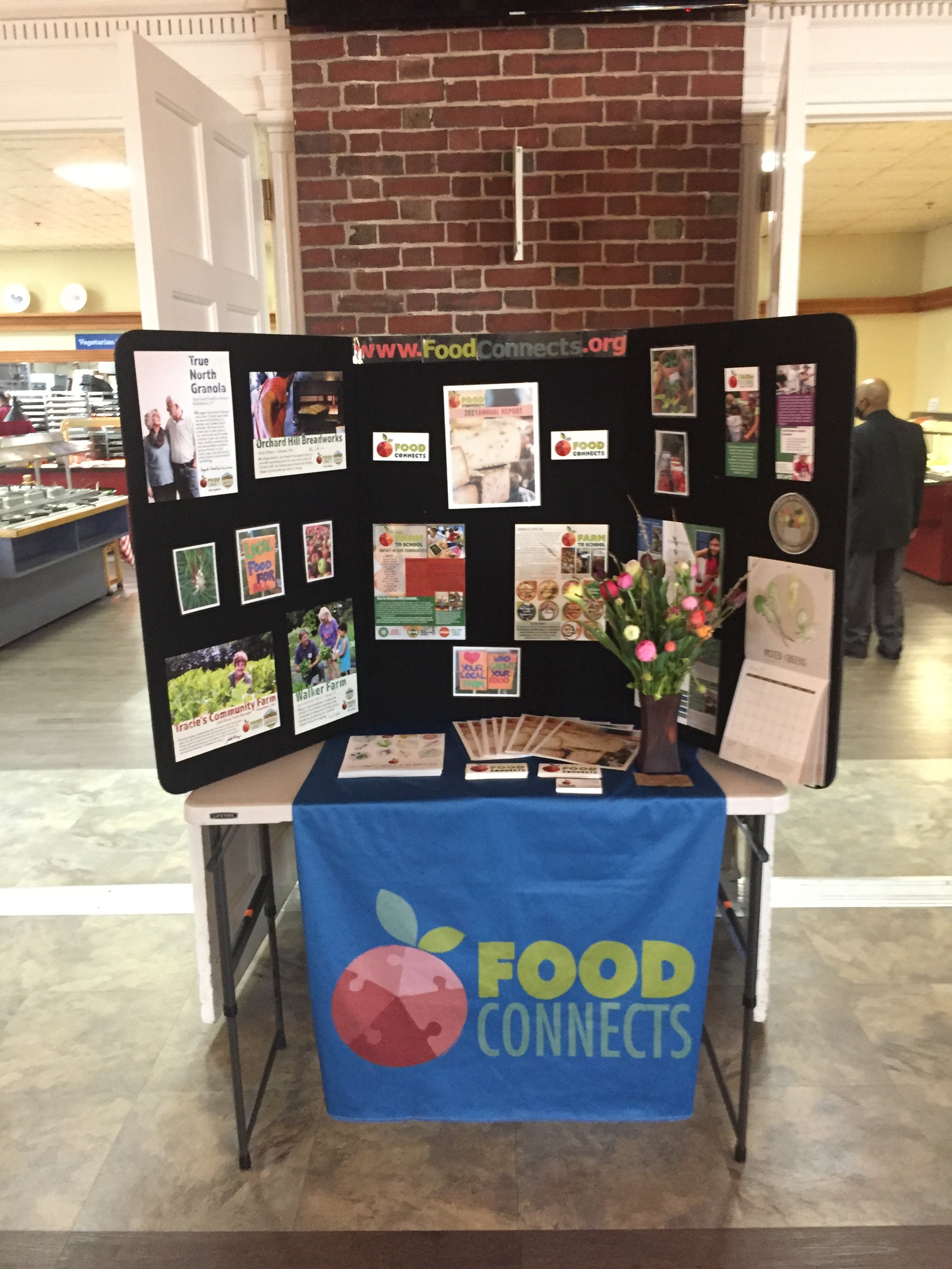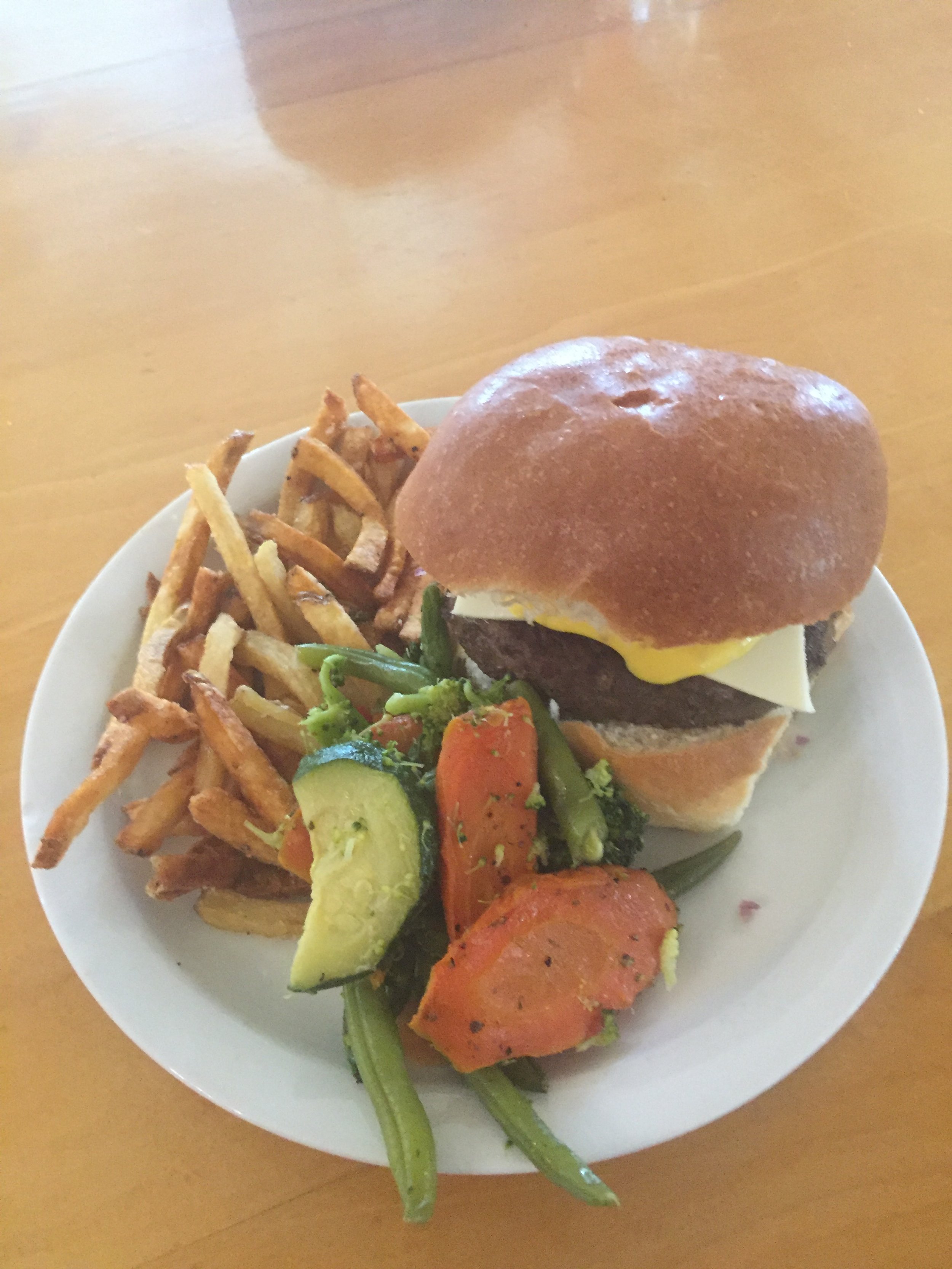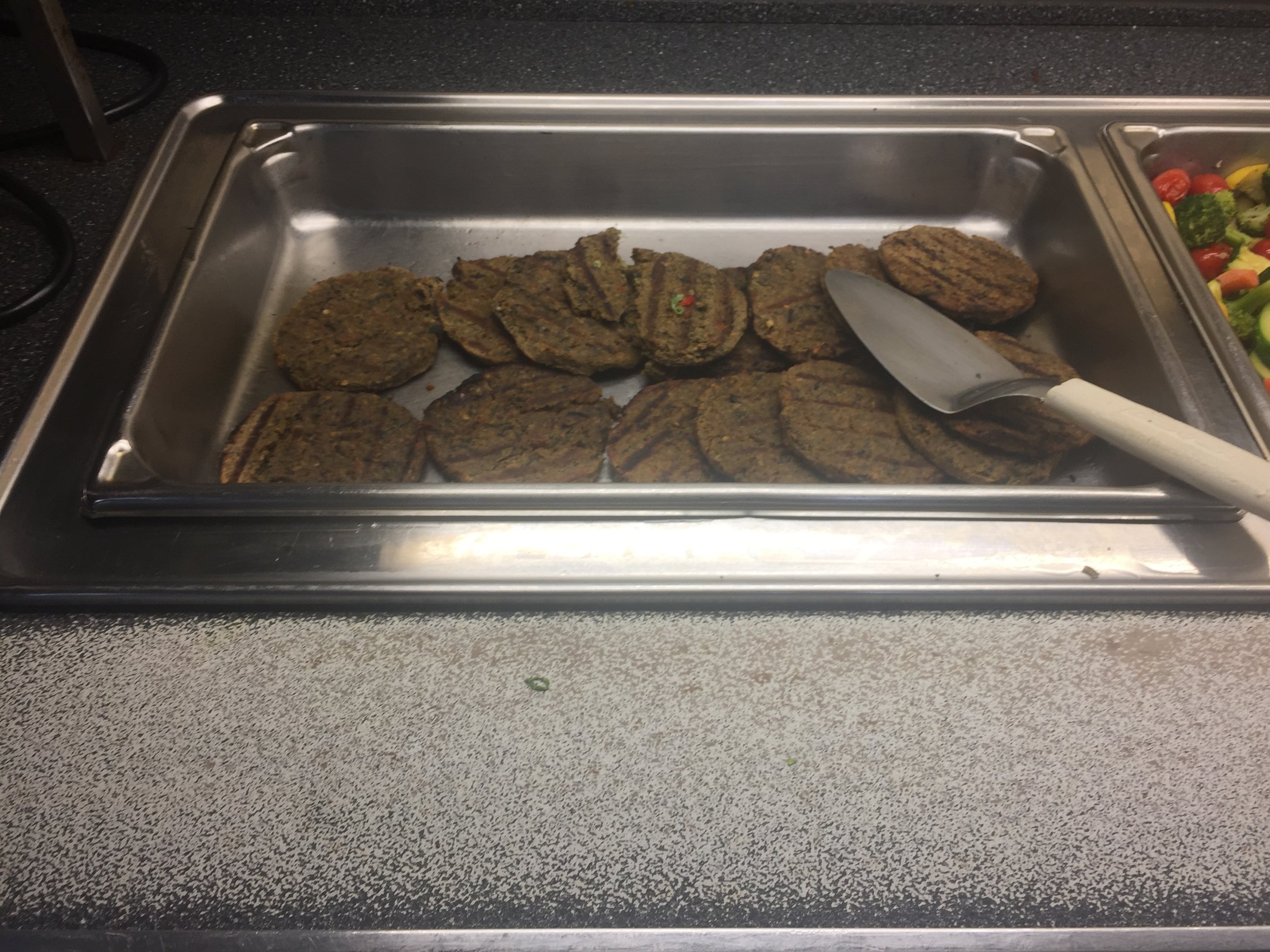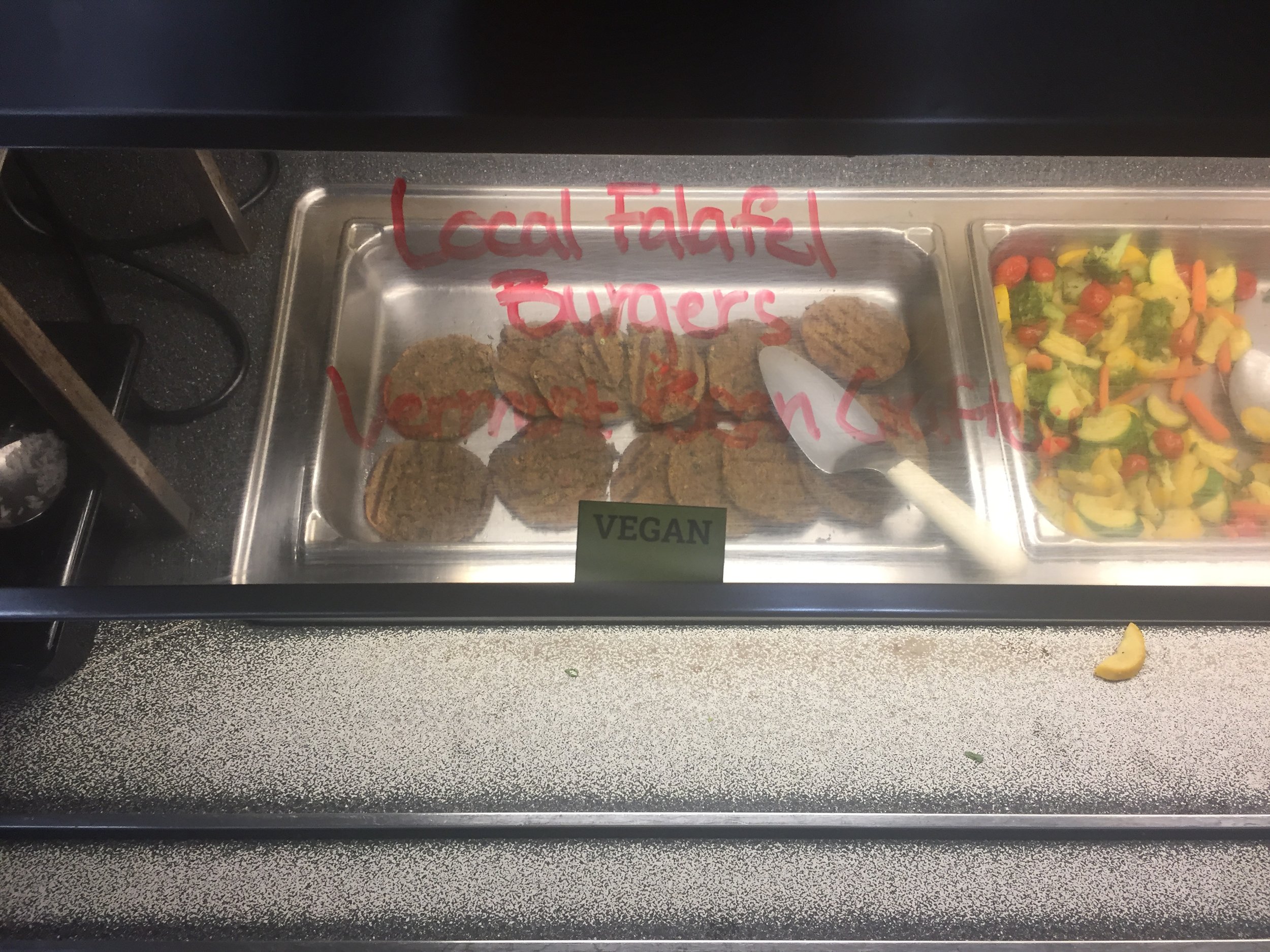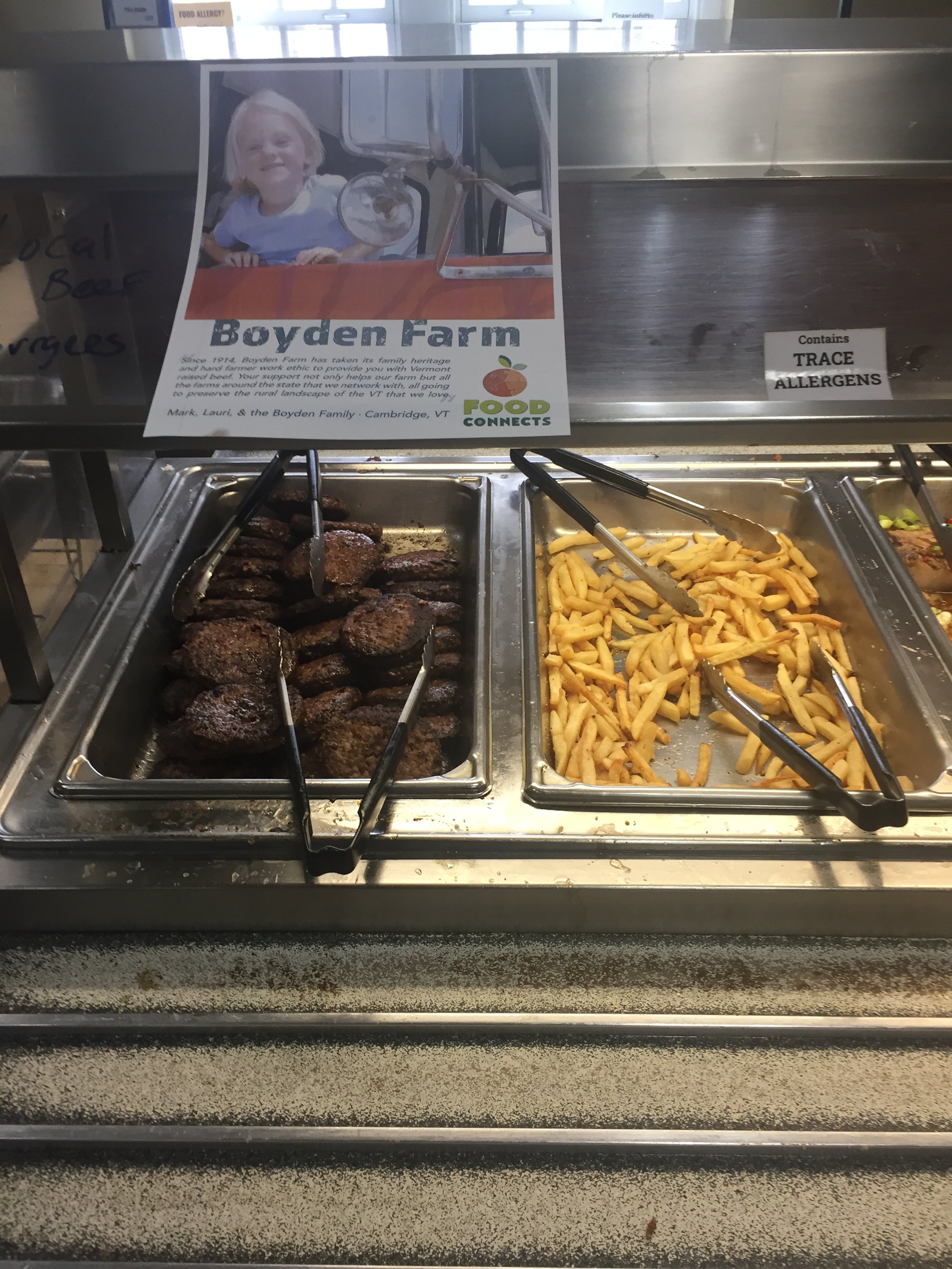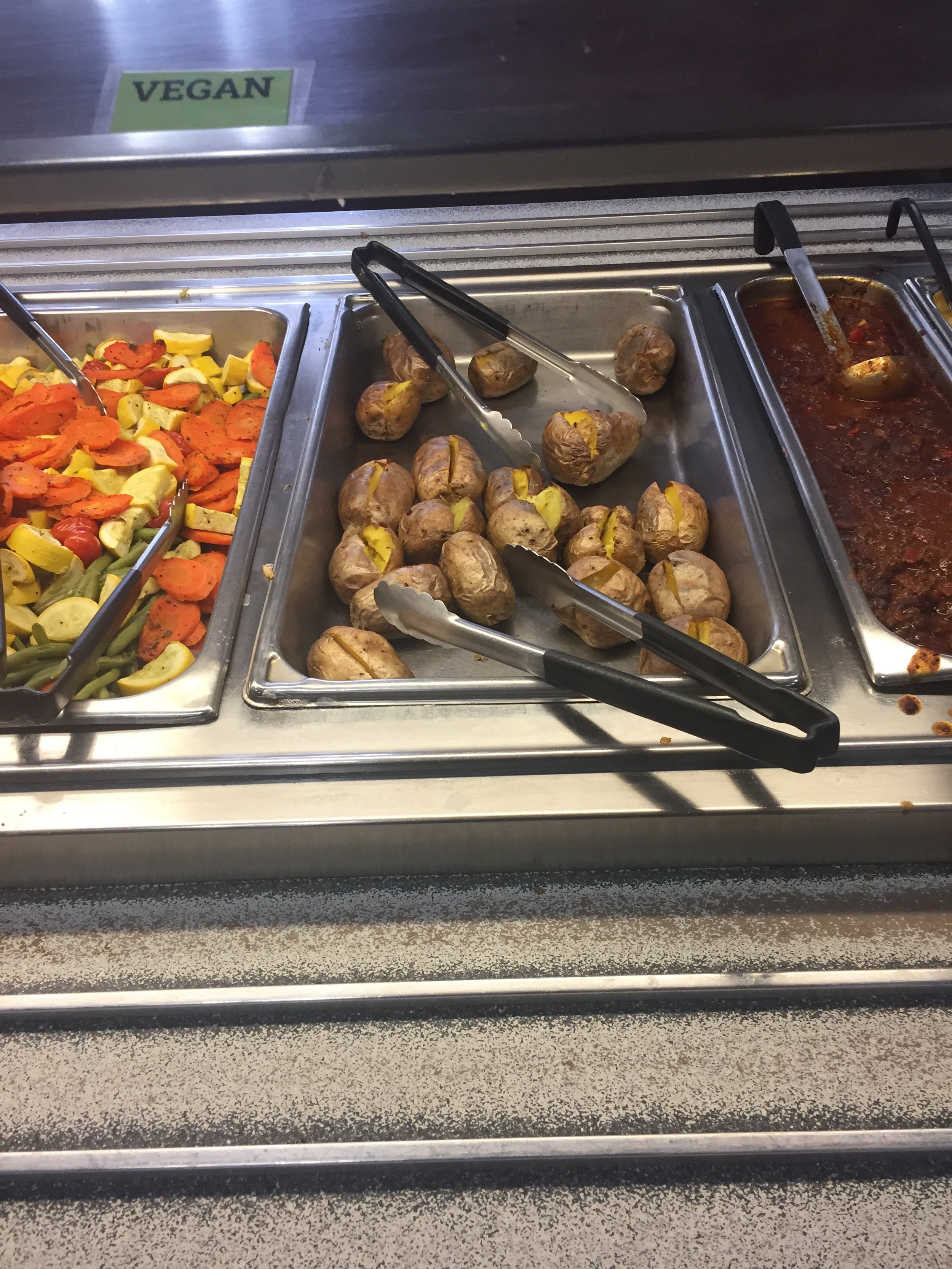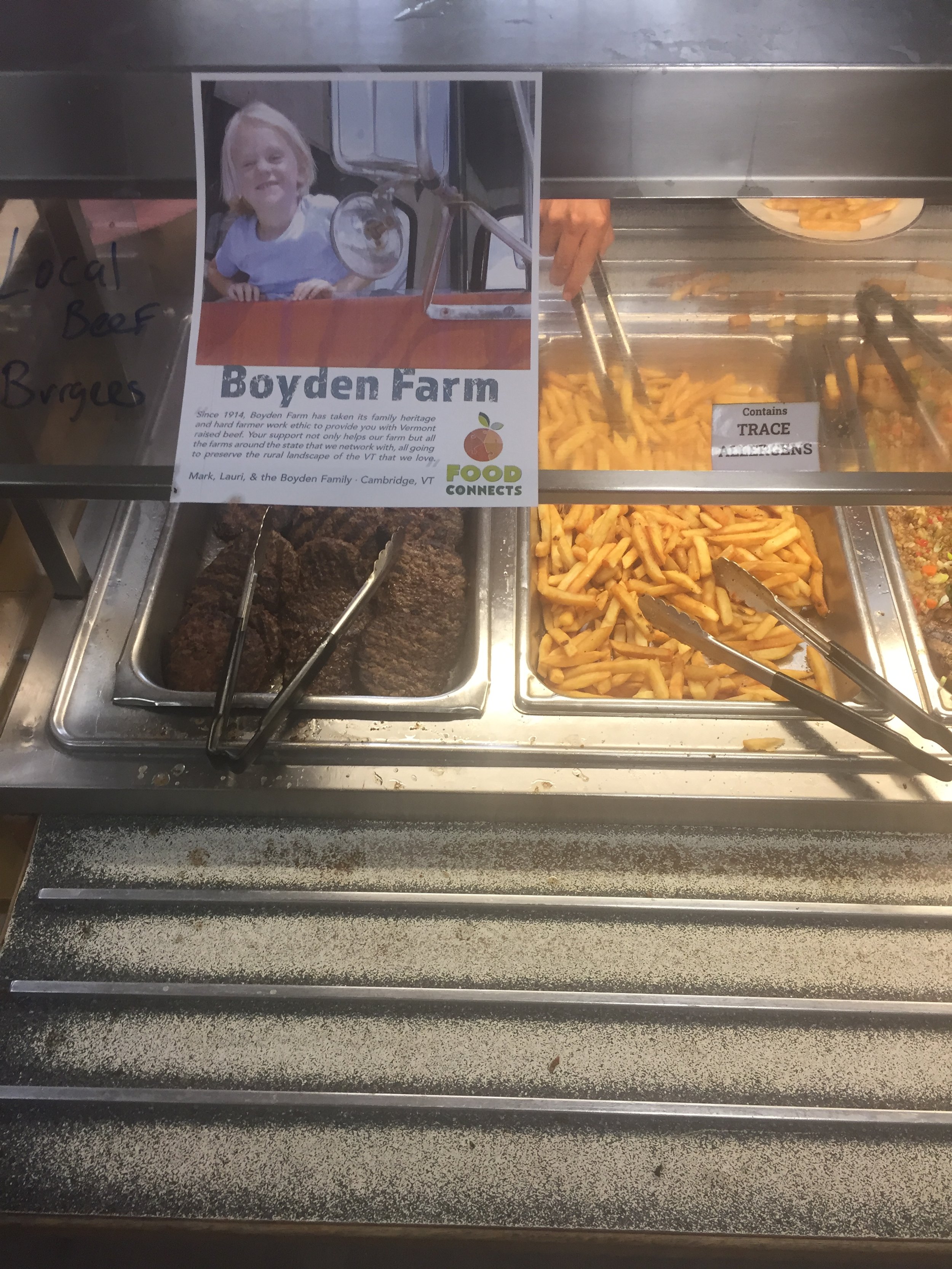Food Connects is thrilled to share the increased growth of our Food Hub family. As our team has established more partnerships with food hubs across New England, we’ve onboarded 35 producers over the past 18 months. These new producers represent an increase our diversity in products, ensuring our wholesale customers see Food Connects as a one-stop-shop.
Food Connects Brings Regional Food to MA Schools
Food Connects, a non-profit Food Hub in Brattleboro, VT, is excited to share its newest partnerships with schools across the Pioneer Valley of Massachusetts.
Food Connects is a catalyst for food systems change—centering food consumption, education, and distribution around community-based food systems. The organization delivers source-identified foods to schools throughout the Connecticut River Valley. With a strong foothold in Vermont and New Hampshire, Food Connects has looked towards Massachusetts for ways to provide more value to school nutrition programs through regionally-grown and made foods.
And Massachusetts schools are literally eating it up! In the 2021-2022 school year alone, Food Connects has delivered more than $30,000 in regional products to Massachusetts schools. From beef, pork, and chicken to granola, yogurt, and gelato—the variety of regionally grown and made foods now on students’ plates is tremendous.
Both public and private schools throughout Massachusetts are shifting to regionally sourced food. Food Connects is thrilled to see the diversity of locations and types of schools—ensuring that all students have access to the same great food.
Private Schools
Northfield Mount Hermon (NMH) is a private boarding school and one of the leaders in the local food movement. When D.L. Moody founded the girls’ and boys’ schools, the schools’ farms were at their core, feeding the student body. And though the farm isn’t the only source of food for the school, it is still a core part of its culture and heritage.
On Friday, May 6th, 2022, NMH hosted its first Food Systems Teach-In since the start of the COVID-19 pandemic. This was a day when the high school curriculum centered on food and food systems. And the classrooms weren’t the only thing full of food systems thinking—the dining hall menu for the day centered on regionally sourced foods.
Food Connects offered many regional products from regional producers, including:
Tom Brewton, Food Connects Institutional Sales Associate, tabled at the event during lunch hours and was able to share with students and faculty about the regional products featured on the menu. Laura Carbonneau, Food Connects Marketing and Outreach Manager and NMH alumnae, joined students in the classroom, speaking about the Farm Bill, climate resiliency, food, and food systems. The response from students in the dining hall and the classroom was enthusiastic and engaged—lots of “yums.”
Deerfield Academy (DA), located in Deerfield, MA, is another boarding school for high school students in the Pioneer Valley. DA is proud to boast a Farm Team, a group of students who help out at two local farms with harvesting and garlic preparation projects. Working with DA for the first time this school year, Food Connects has delivered various products, including strip loins from Big Picture Beef and burger patties from Robie Farm.
Eaglebrook School is a 6th through 9th grade all-boys boarding and day school also located in Deerfield, MA. This year alone, the school has purchased 3,672 pounds of ground beef from both Big Picture Beef and Boyden Beef.
Public Schools
Food Connects has a history of working with public schools throughout Vermont and New Hampshire, providing high-quality, regionally-sourced foods. The Food Connects team takes pride in extending those same products and services to public schools throughout Massachusetts’s Pioneer Valley.
Greta Shwachman, Food Service Director for Greenfield Public Schools (GPS), is passionate about integrating local products into her menus. This is no surprise, as she was previously the Farm to School Program Coordinator for the Chicopee Public Schools. Her passion for Farm to School has made adding regionally sourced foods to her menu seamless.
“Institutions like K-12 schools hold a lot of purchasing power,” says Greta. “I prioritize buying regionally-sourced foods to ensure that this power is used to support the local food economy. I enjoy the opportunity to meet farmers and producers, and help local food businesses grow and scale to have more success in the institutional market.”
Food Connects has supplied the GPS, which consists of 6 different schools, with ground beef from Big Picture Beef, bulk yogurt from Narragansett Creamery, and granola from True North Granola Company. And not just food but also promotional marketing materials, so students can connect with their food and the farmers.
“I believe that students should know where their food comes from,” says Greta. “And I enjoy working with Food Connects because they understand the importance of putting a face and a name with a product. I have appreciated the signage they have sent us, which includes background on the producer, and even the number of miles the product traveled to reach our cafeterias.”
Earlier this year, Tom met with Michael Onorato, Food Service Director of the Pioneer Valley Regional School District (PVRSD). Coincidentally, Michael was already familiar with Food Connects—he was previously the Food Service Director for Conval Regional School District, another school district Food Connects serves. To date, Food Connects has supplied the PVRSD with various products, including apples, potatoes, carrots, and eggs.
Food Connects is also working with Massachusetts Farm to School, whose mission is to “strengthen local farms and fisheries and promote healthy communities by increasing local food purchasing and education at schools.” The organization, aligned with both the Vermont and New Hampshire Farm to School programs, serves as a vital lifeline for Massachusetts schools to access support, curriculum, and other resources to develop Farm to School programming.
Food Connects will participate in the Local Food Networking Session on Thursday, June 16, from 3:00 to 4:30 PM in Greenfield at the John Olver Transit Center. This event will be a spring get-together for K-12 school nutrition professionals in Franklin County. The event will include vendor displays, sampling, presentations, and discussions. And while the focus will be on local food procurement, there will be discussions on other topics. The event is being co-organized by the Partnership for Youth at FRCOG (Franklin Regional Council of Governments), Greenfield Public Schools, and Western Mass Food Processing Center at the Franklin County Community Development Corporation. If you are a school nutrition professional and want to learn more, you can register for the event today.
If you are a food service director, work in a school, and would like to integrate more local foods into your menus, Food Connects would love to support you! At this time, their customer routes go from Brattleboro, VT, down I-91 as far south as Northampton, MA. Know that our routes are quickly expanding so we would be happy to hear from you even if you don’t fall within our existing geographic reach in MA. Please reach out to their sales team at sales@foodconnects.org.
Producer Spotlight: Vermont Bean Crafters
One of Food Connects’ newest producers is Vermont Bean Crafters. Operating out of Waitsfield, VT, they were “founded on the belief that what we eat and how it is prepared has a direct and powerful effect on our communities and the environment. That we can do good by eating well.” This ethos rings true with the entire team at Food Connects. So, let us introduce Joe Bossen, Founder and President of Vermont Bean Crafters.
How did Vermont Bean Crafters come to be?
I was drawn to beans in particular for too many reasons to enumerate. These include their role in crop rotations, the fact that they are shelf-stable, the versatility they offer in a culinary context, the fact that they are an affordable protein source, the role they play in healthy diets, and so much more.
Bean Crafters was started at Boardman Hill Farm in West Rutland back in 2009. I was working for Greg at the time and looking to find ways to get more local organic produce into our community. We really wanted to help lock in the farm’s harvests into frozen-value added products to create markets for any surplus or seconds that might otherwise have markets. We started out selling at a few farmers’ markets in Rutland County and even spent a couple of years going to the New Amsterdam Market in NYC as we got our feet on the ground and figured out how to work with distributors and build the business.
What makes your products unique?
We make a point to make food that as many people as possible can eat. This means avoiding all common allergens. Beans in and of themselves are a healthy choice for pretty much everyone (unless one has favism). We don’t use soy in any of our products, so they are free of soy, are vegan, naturally gluten-free, nut-free, and, being certified organic, our value-added products are implicitly GMO-free.
What is one of your favorite products you make?
Honestly, after 10 years I’m still not sick of our Black Bean Burgers. I think that says a lot.
Could you tell our readers a little bit about where you source your products from and any special relationships you have with local farmers?
We have a pretty tight lot tracking and inventory management system. We audit ourselves each year to assess how well we did in sourcing as many ingredients directly from local farms each year. We share that information on our website. We fill our freezer with enough kale and parsley before the hard frosts come in to get us through to the following summer. This past year we got nearly all of the thousands of pounds of our greens from three farms within an hour of us: Kingsbury Market Garden (where our kitchen is located), Alpenglow Farm in Warren, and Bear Roots Farm in Williamstown.
Why is buying and selling locally and the local food movement is important to you?
There is a lot of joy in being in a relationship with the people we work with on the grower and the eater side of our work and there is nothing I enjoy more than cooking food and feeding people.
I value how the versatility and affordability of beans have enabled us to get local and organic food into venues where such foods were less common years ago, from institutional foodservice to pubs and diners. I dig that people can count on having a better burger when visiting a loved one at Dartmouth Hitchcock, or that K-12 students don’t have to grow up with the salted cardboard veggie burgers I did. The fact that those burgers have nutrient-dense vegetables from farms we know and trust makes it all the more a joyful and meaningful proposition.
How does working with Food Connects help your business/what are you excited about in this partnership?
We have seen a lot of consolidation in food distribution over the last ten years. It’s exciting for us to have a locally-based distributor that is accessible and intentional in their work. Our customer service can only be as good as the pipeline that connects us with our customers. We are more interested in continuing our growth through a patchwork quilt of independent smaller distributors functioning on a human scale than we are hitting it big with a national distributor.
Any events coming up or fun facts about your business/products?
We have a lot rolling out this year. We have launched a retail dry bean program for the first time, are redoing all of our retail packaging for our bean burgers, are adding two new value-added products, and have launched our bean subscription service: Bean Box.
Anything else you would like me to feature? Anything that you are doing to respond to the COVID-19 crisis?
About half of our sales were to institutional foodservice pre-COVID-19. We sold most of our foods to colleges, universities, hospitals, and K-12 schools. All of that went away overnight, which is partly why we have so many new things rolling out this year. It’s been a hell of a year but we are doing okay and it is looking like we’ll be on a stronger footing than ever.

